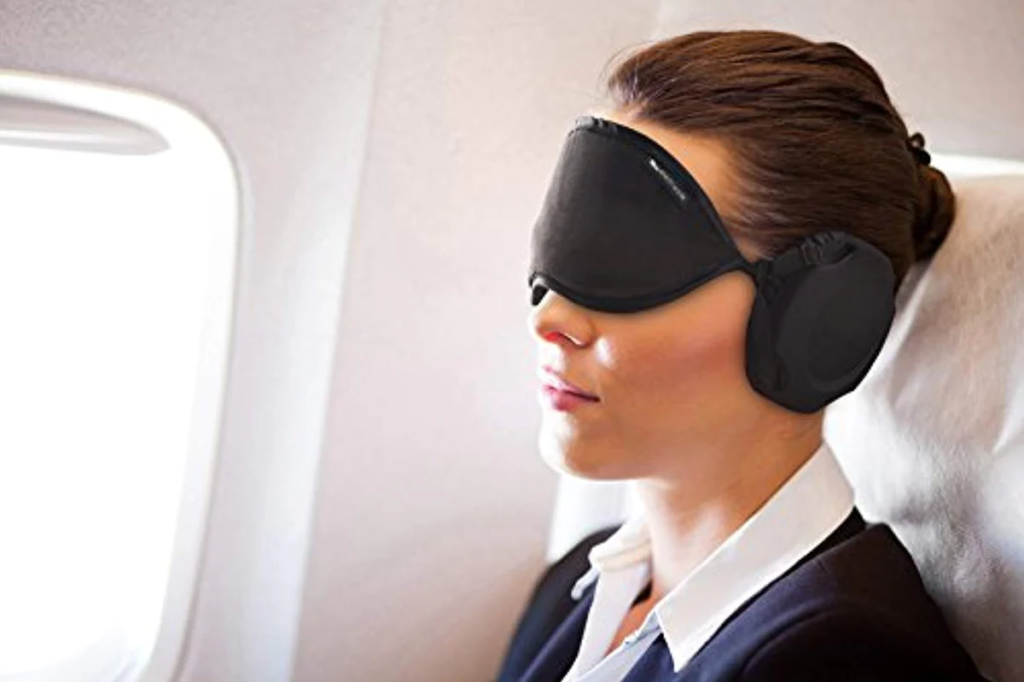Your body’s temperature, blood pressure, glucose, and hormone levels fluctuate during the course of each 24-hour cycle. Your body’s internal clock, which is synchronized with the light you see, controls these processes. Depending on how long and when you are exposed to light and darkness, your internal clock may run faster or slower.

You typically receive roughly the same amount and timing of sunlight each day. Even if the change is gradual enough for your body to adapt, it varies seasonally. This is how our circadian rhythms, also known as internal clocks, typically maintain balance.
The change is dramatic when crossing time zones quickly on an airplane, though. Your body is still programmed to respond to the patterns of the sun where you are when you cross time zones. Your internal clock is thrown off when you are exposed to light while your body is acclimated to darkness and vice versa.
How long does jet lag last before it goes away?
Where you’re traveling to and how susceptible your body is to time changes will determine how long jet lag lasts and how it affects you. Those who are extremely tuned in to their circadian rhythms assert that even a one-hour time shift can cause jet lag in some persons. However, often, a person doesn’t suffer jet lag until there is a time zone difference of more than an hour.
It could be challenging to get to sleep at night if you’re heading east. When you travel in this manner, it will also take your body a little longer to acclimate. The general rule is that for every additional time zone you travel through, you will have one additional day of jet lag. Therefore, if you go three time zones to the east, you will experience jet lag for around three days.
You might have to get up earlier than you’d like to if you’re driving west. However, when you travel this way, it doesn’t take your body as long to acclimatize. You will have jet lag for the equivalent of two-thirds of the time zones you travel through. Therefore, if you shift three time zones to the west, you will have jet lag for around two days.
Can you do anything to prevent jet lag?
Although you can’t completely avoid jet lag, you can lessen its affects. Try these recommendations, the majority of which are absolutely natural.
1. Before your travel, start adjusting your light exposure to shorten the period you may experience jet lag.

By managing your exposure to light and darkness before to travel, you may trick your body clock and transition into a new time zone as rapidly as feasible. You can determine the timetable modification that will be most beneficial for you and your journey. On your smartphone, you may also download the free Entrain app, which makes it simple to follow your schedule adjustment.
2. If you’re moving east, think about taking melatonin supplements.

Your brain naturally produces the hormone melatonin. Only released at night, it announces customary nocturnal habits. That includes sleep for people. When using supplements to combat jet lag, “less is more” because melatonin functions best in low quantities. To be effective, it must also be taken at the appropriate time. 13 hours before the time you want to wake up, take 0.5 mg of melatonin. Higher doses may result in other issues and won’t make it any easier or faster for you to fall asleep. Before your travel, at the same time as you’re regulating how much light and darkness you’re exposed to, you should take melatonin tablets. Next, discontinue taking melatonin the day before your journey.
3. Plan your departure.

Whenever possible, plan your travel so that you arrive at your destination around the time you typically get up. It is common practice to book flights that go through several time zones to land in the morning. You might have to leave your house at an unexpected hour because of this. However, keep in mind that your arrival time is crucial if you want to minimize the impacts of jet lag.
4. Make an effort to sleep during the flight.

Ideally, you should awaken as your plane touches down at your destination in the morning. Use a sleep aid if you require it. But once you get there, don’t rely on one. Stay busy if you can’t sleep on the plane. Regularly extend your arms and legs by walking around. This also avoids cramping and back ache brought on by cramped travel circumstances.
5. If you can, avoid extended layovers in other time zones.

Since you don’t have enough time to fully adjust, this can further mess with your internal clock. The best options are nonstop flights or stops with only enough time to switch planes.
6. Avoid drinking alcohol, coffee, and caffeinated soda while flying.

Avoid them when you first arrive at your location and at the airport bar as well. Drink lots of water or other non-dehydrating beverages in its place. The effects of jet lag might be made worse by dehydration.
7. If it’s daytime when you get at your destination, leave the house!

Be active and go around. For your body’s clock to adjust, get as much strong light in the morning and afternoon as you can. Even while your stomach might not be ready when you first get there, it’s still crucial to try to eat something around the time you normally would. This is due to the fact that eating also influences the internal clock.
8. In the days after your arrival, try to avoid taking naps.

If necessary, a quick snooze can keep you awake during the day. However, taking a nap for longer than 30 minutes can prevent you from going to sleep at night. Try to remain up until your usual bedtime so that you can wake up on schedule the following day.
9. Bring a sleep mask and earplugs.

Even if your body doesn’t feel like it’s ready, these can help you fall asleep.
Do kids experience jet lag?
Taking a trip with kids has its own rewards and challenges. Unfortunately, children can experience jet lag as well. Encourage kids to follow your lead on minimizing jet lag, especially when it comes to staying hydrated, even though youngsters frequently acclimate more quickly than adults do.
What other aspects of travel might interfere with my sleep?
Travel is fun, but that’s not always a good thing for your ability to get a decent night’s sleep. You might have different types of sleep disruption in addition to jet lag. For better sleep, try to lessen these influences.
unknown noises
If you’re visiting a large city but are accustomed to a tranquil existence in the country or the suburbs, noise may keep you awake. Therefore, it could be a good idea to take earplugs. Similarly, if you are from a city but are traveling outside of it, you could find it difficult to go asleep due to the lack of noise. Running a fan or using a white noise app on your phone both offer relief.
Stress
People frequently experience stress as a result of the disruption to their routine that travel brings. Request two wake-up calls if you are staying at a hotel. This will help you wake up in the morning at the appropriate time and prevent you from losing sleep over missing one.
Weather
If the temperature is lower than 65 degrees Fahrenheit or higher than 75 degrees Fahrenheit, most people find it difficult to fall asleep. Winter pajamas are something to consider bringing if you’re going somewhere cold. If you’re going somewhere hot, dress in airy, light attire. And if there isn’t any air conditioning, try these suggestions.
Altitude
Your body needs a few weeks to adjust to elevations of 13,200 feet or higher. And if you have breathing issues, climbing higher than 6,000 feet can be difficult. Breathing becomes more difficult when there is less oxygen in the air, which can impact both your activities and sleep. Try to spend the night at a lower altitude than you do during the day. Use a humidifier at night if you can, stay hydrated, and sleep on your side.




